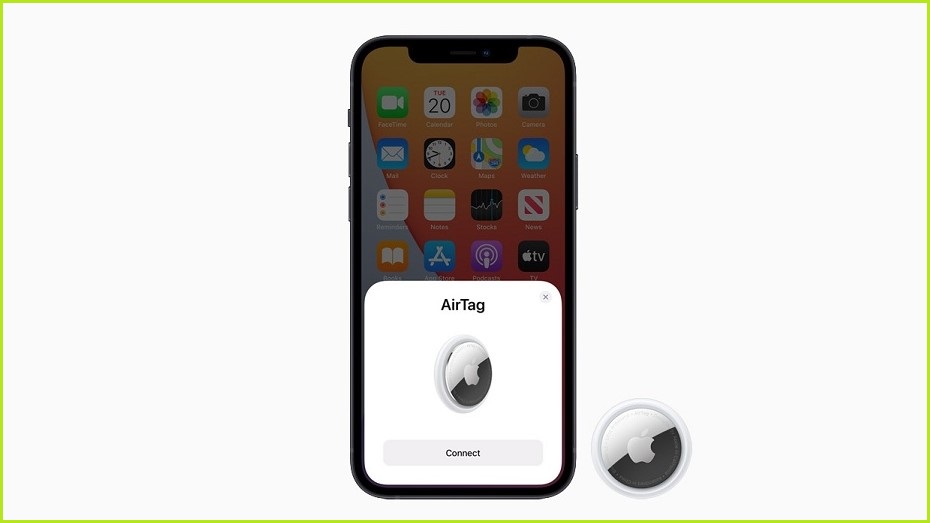They’ve been called Apple’s “Midas touch” and a $12.9b ($10b) opportunity for Apple, but the design of the company’s diminutive AirTag Bluetooth trackers makes them dangerous for young children, the Australian Competition and Consumer Commission (ACCC) has warned as it asks parents to keep the devices away from their children “as a safety precaution”.
AirTags – which have been lauded for their ability to locate nearly anything by tapping Apple’s 1 billion-strong network of iPhones and iPads – were welcomed by analysts such as consumer tech analyst Tim Bajarin, who noted that selling just 35m of the devices would turn them into a $1.3b ($US1b) product line for Apple.
The devices have been designed so that users can replace their ‘button’-style CR2032 lithium batteries – which provide about a year’s worth of power – by removing the device’s cover.
However, the lid of the battery compartment “does not always secure fully on closing”, the ACCC noted, “and a distinctive sound plays when an AirTag’s lid is being closed, suggesting the lid is secure when it may not be.”
Despite Apple publicly claiming that AirTags have a two-step ‘push-and-turn mechanism’ designed to international safety standards, the ACCC is concerned that the devices’ battery buttons can be “removed with ease”.

Apple’s assurances “[do] not address our fundamental concerns about children being able to access the button batteries in these devices,” ACCC deputy chair Delia Rickard said.
“We are continuing to investigate to determine what actions may be required to address our safety concerns,” she added.
“As a safety precaution, we urge parents to keep AirTags away from their children.”
The ACCC is also evaluating “similar” trackers from other vendors, with firms like Samsung recently introducing its competing SmartTag and SmartTag+.
Batteries, not lollies
The small button batteries – ubiquitous for powering car-door key fobs, hearing aids and garage-door openers – have become increasingly common as power sources for ever-smaller gadgets.
Yet their small size and shiny surface makes them inherently attractive to children, with an estimated 20 children presenting to Australian hospital emergency departments every week with a battery-related injury.
They pose a serious choking risk and prolonged contact with the batteries can create significant problems, the National Retail Association has warned, including internal chemical burns and “catastrophic” internal bleeding after just a few hours.
Concerns about the batteries became so significant that the government last December introduced a series of “risk based mandatory regulation”, mandating changes including secure battery compartments to prevent children from gaining access to battery compartments; compliance testing of consumer goods containing button batteries to prove that batteries are “secure and cannot be easily released”; and child-resistant packaging for button batteries.
Under the new regulations – which were introduced last December and will become mandatory on 22 June 2022 – products containing button batteries must include warnings to alert consumers to the presence of the batteries.
AirTags’ packaging originally shipped without any such warnings, although the ACCC noted that Apple has since added one.
Yet even that wasn’t enough to convince Australian retailers of the products’ safety, with Officeworks, Big W and JB Hi-Fi pulling the products from their shelves days after their launch because of concerns about their battery compartments.

It’s not the only setback for AirTags in their short lifetimes: concerns about their potential surveillance role and use by stalkers have been rife, while in late May the company pulled its premium-priced Hermés-branded AirTag key ring, bag charm, and luggage tag due to what observers believe are quality issues, although the items remain online with a ‘sold out’ label.










